第26章 THE HORLA(8)
Now I know, I can divine. The reign of man is over, and he has come. He whom disquieted priests exorcised, whom sorcerers evoked on dark nights, without seeing him appear, He to whom the imaginations of the transient masters of the world lent all the monstrous or graceful forms of gnomes, spirits, genii, fairies, and familiar spirits. After the coarse conceptions of primitive fear, men more enlightened gave him a truer form. Mesmer divined him, and ten years ago physicians accurately discovered the nature of his power, even before He exercised it himself. They played with that weapon of their new Lord, the sway of a mysterious will over the human soul, which had become enslaved.
They called it mesmerism, hypnotism, suggestion, I know not what?
I have seen them diverting themselves like rash children with this horrible power! Woe to us! Woe to man! He has come, the--the--what does He call himself--the--I fancy that he is shouting out his name to me and I do not hear him--the--yes--He is shouting it out--I am listening--Icannot--repeat--it--Horla--I have heard--the Horla--it is He--the Horla--He has come!--Ah! the vulture has eaten the pigeon, the wolf has eaten the lamb; the lion has devoured the sharp-horned buffalo; man has killed the lion with an arrow, with a spear, with gunpowder; but the Horla will make of man what man has made of the horse and of the ox: his chattel, his slave, and his food, by the mere power of his will. Woe to us!
But, nevertheless, sometimes the animal rebels and kills the man who has subjugated it. I should also like--I shall be able to--but I must know Him, touch Him, see Him! Learned men say that eyes of animals, as they differ from ours, do not distinguish as ours do. And my eye cannot distinguish this newcomer who is oppressing me.
Why? Oh! Now I remember the words of the monk at Mont Saint-Michel: "Can we see the hundred-thousandth part of what exists? Listen; there is the wind which is the strongest force in nature; it knocks men down, blows down buildings, uproots trees, raises the sea into mountains of water, destroys cliffs, and casts great ships on to the breakers; it kills, it whistles, it sighs, it roars,--have you ever seen it, and can you see it? It exists for all that, however!"And I went on thinking: my eyes are so weak, so imperfect, that they do not even distinguish hard bodies, if they are as transparent as glass! If a glass without quicksilver behind it were to bar my way, I should run into it, just like a bird which has flown into a room breaks its head against the windowpanes. Athousand things, moreover, deceive a man and lead him astray. How then is it surprising that he cannot perceive a new body which is penetrated and pervaded by the light?
A new being! Why not? It was assuredly bound to come! Why should we be the last? We do not distinguish it, like all the others created before us? The reason is, that its nature is more delicate, its body finer and more finished than ours. Our makeup is so weak, so awkwardly conceived; our body is encumbered with organs that are always tired, always being strained like locks that are too complicated; it lives like a plant and like an animal nourishing itself with difficulty on air, herbs, and flesh; it is a brute machine which is a prey to maladies, to malformations, to decay; it is broken-winded, badly regulated, simple and eccentric, ingeniously yet badly made, a coarse and yet a delicate mechanism, in brief, the outline of a being which might become intelligent and great.
There are only a few--so few--stages of development in this world, from the oyster up to man. Why should there not be one more, when once that period is accomplished which separates the successive products one from the other?
Why not one more? Why not, also, other trees with immense, splendid flowers, perfuming whole regions? Why not other elements beside fire, air, earth, and water? There are four, only four, nursing fathers of various beings! What a pity! Why should not there be forty, four hundred, four thousand! How poor everything is, how mean and wretched--grudgingly given, poorly invented, clumsily made! Ah! the elephant and the hippopotamus, what power!
And the camel, what suppleness!
But the butterfly, you will say, a flying flower! I dream of one that should be as large as a hundred worlds, with wings whose shape, beauty, colors, and motion I cannot even express. But Isee it--it flutters from star to star, refreshing them and perfuming them with the light and harmonious breath of its flight! And the people up there gaze at it as it passes in an ecstasy of delight!
What is the matter with me? It is He, the Horla who haunts me, and who makes me think of these foolish things! He is within me, He is becoming my soul; I shall kill him!
August 20. I shall kill Him. I have seen Him! Yesterday I sat down at my table and pretended to write very assiduously. I knew quite well that He would come prowling round me, quite close to me, so close that I might perhaps be able to touch him, to seize him. And then--then I should have the strength of desperation; Ishould have my hands, my knees, my chest, my forehead, my teeth to strangle him, to crush him, to bite him, to tear him to pieces. And I watched for him with all my overexcited nerves.
I had lighted my two lamps and the eight wax candles on my mantelpiece, as if, by this light I should discover Him.